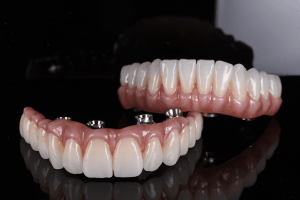Navigating Affordable Dental Implants For Seniors: Solutions For A Lasting Smile
For seniors, maintaining oral health is a crucial aspect of overall well-being, yet the cost of dental care can often be a significant barrier. Dental implants represent a modern and long-term solution for tooth loss, offering a sense of normalcy, functionality, and confidence in one’s smile. Unfortunately, the associated costs can deter many seniors from pursuing this option. This article explores how seniors can access affordable dental implants, ensuring that this life-improving treatment is within reach.

The Value of Dental Implants for Seniors
Dental implants provide numerous benefits over traditional dentures or bridges. They prevent bone loss, do not require adjacent teeth for support, and offer a comfortable fit and natural look. However, the initial investment is higher, which is why finding affordable options is essential.
Factors Affecting the Cost of Dental Implants
Several factors contribute to the cost of dental implants:
- Materials : The type of material used for the implant and the crown can affect cost.
- Number of Implants : More missing teeth will require more implants, increasing the price.
- Bone Grafting : Some seniors may require bone grafting if bone loss has occurred, which can add to the expense.
- Dentist’s Expertise : Experienced and specialized implant dentists may charge more for their services.
Strategies for Finding Affordable Dental Implants
- Comparison Shopping : Obtain quotes from several dental offices. Prices can vary significantly based on location and the dental practice.
- Dental Schools : Dental schools often offer dental services, including implants, at a lower cost. Treatment is provided by supervised students or residents, offering a balance between quality and affordability.
- Dental Discount Plans : These plans are not insurance but provide discounts on dental services at participating dentists.
- Financing Options : Many dental practices offer financing plans that allow patients to pay for implants over time.
- Dental Clinics : Community dental clinics and health centers may offer lower-cost services based on income.
- Insurance : While many dental insurance plans do not cover implants, some may partially cover the crown or related procedures. It’s worth investigating your policy.
- Government Programs : In some regions, government programs for seniors may offer assistance with dental care.
Cost-Saving Tips for Dental Implants
- Preventive Care : Maintaining good oral hygiene can minimize the need for additional procedures that could add to the cost.
- Mini Implants : These are sometimes a more affordable alternative to full implants, though they may not be suitable for everyone.
- Phased Treatment : Spreading out the implant process can manage costs over time, rather than paying for the entire treatment at once.
- All-on-4 Technique : This method uses only four implants to support a full arch, which can be less expensive than multiple individual implants.
Questions to Ask Your Dentist About Affordable Implants
- Are there alternative treatment options that could be more cost-effective?
- Can you provide a detailed breakdown of costs?
- Is there a possibility for a sliding scale fee based on income?
- What is included in the cost (e.g., aftercare, follow-up appointments)?
Conclusion
Affordable dental implants for seniors are attainable with thorough research and a proactive approach to understanding the options available. By exploring various avenues for cost savings, seniors can access the dental care they need to lead a healthy and fulfilling life. Affordable implants are not just about the cost; they are about preserving the quality of life that every senior deserves. It is a tangible investment in one’s health, well-being, and the joy of a functional and beautiful smile.
